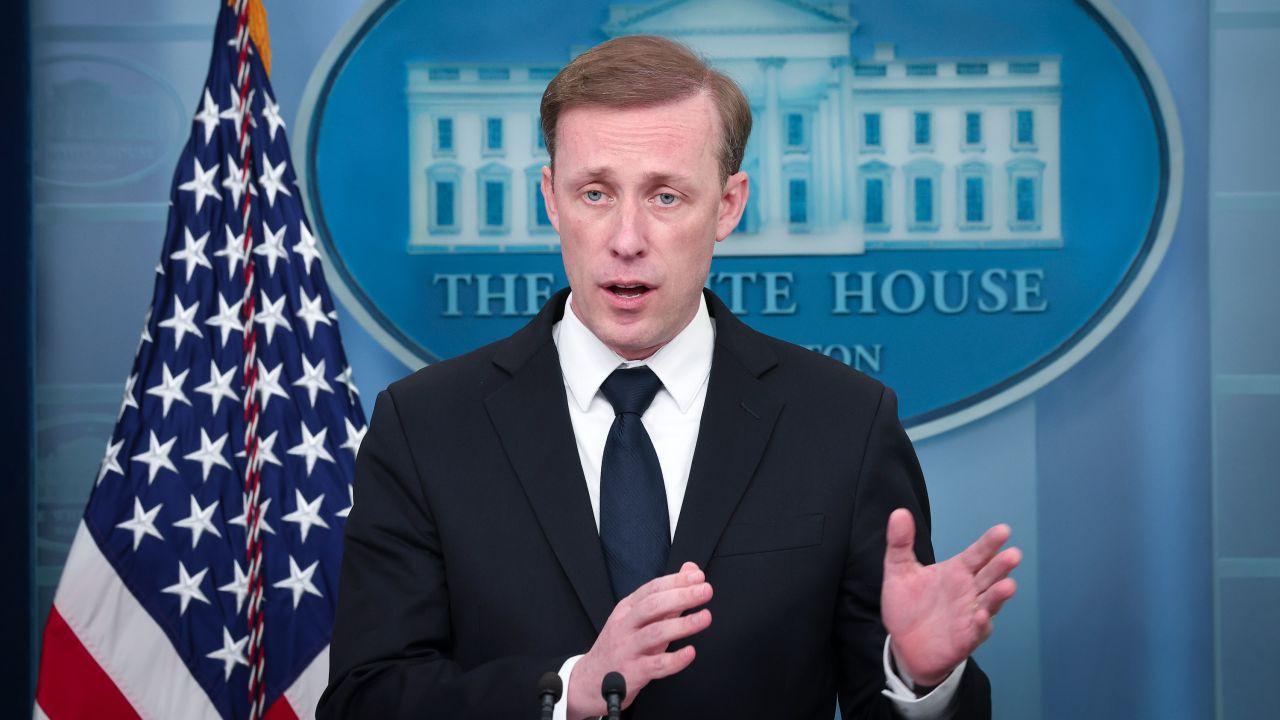
Biden National Security Adviser Jake Sullivan is the inaugural Kissinger Professor of the Practice of Statecraft and World Order
On April 1, former National Security Adviser Jake Sullivan started his new job as the inaugural Kissinger Professor of the Practice of Statecraft and World Order at the Harvard Kennedy School.
Sullivan’s appointment comes at a time that Harvard has come under attack from the Trump administration, which has threatened to cut off $9 billion in funding because the university refuses to adhere to administration demands that it dismantle diversity, equity and inclusion initiatives, crack down harder on student protests and alleged anti-semitism, and reduce the number of international students.
While Trump’s actions, combined with other attacks on American universities and its students, are indicative of a rising authoritarianism, Sullivan’s appointment shows that there were serious problems in the Ivy League and academia writ large that predate Trump and his bullying.
For all the talk on the right of a “radical left, Marxist takeover of the academy,” the evidence shows that in fact we are living in a New McCarthy-era where anti-imperialist, antiwar and leftist professors who are serious, principled scholars have been blacklisted from teaching courses in U.S. foreign policy while conservatives, inside-the beltway pundits and foreign policy practitioners, some of whom are implicated in serious war crimes, are given choice appointments and/or awarded tenure.
Sullivan’s appointment is indicative of the latter. The title of his new position is in many ways fitting because Sullivan and Kissinger have a lot in common:
Both were zealous war hawks and supporters of U.S. imperialism.
The editors of Monthly Review called Sullivan “the leading strategist of the New Cold War and U.S. imperial dominance within the Democratic Party.”
In a speech delivered at the Brookings Institution in 2023 called “Renewing American Economic Leadership,” Sullivan said that public investment should be guided by the needs of geopolitical and military power and channeled into such areas as semiconductors, advanced chips, artificial intelligence, quantum computing, biotechnology, and critical materials to ensure U.S. global technological dominance in all of these areas.
Additionally, Sullivan advocated for expanding sanctions against China—seen as the main threat to U.S. global dominance—and other measures that could deny China key technologies and connections to other countries, and said that the U.S. should surround China with military bases and bellicose alliances.
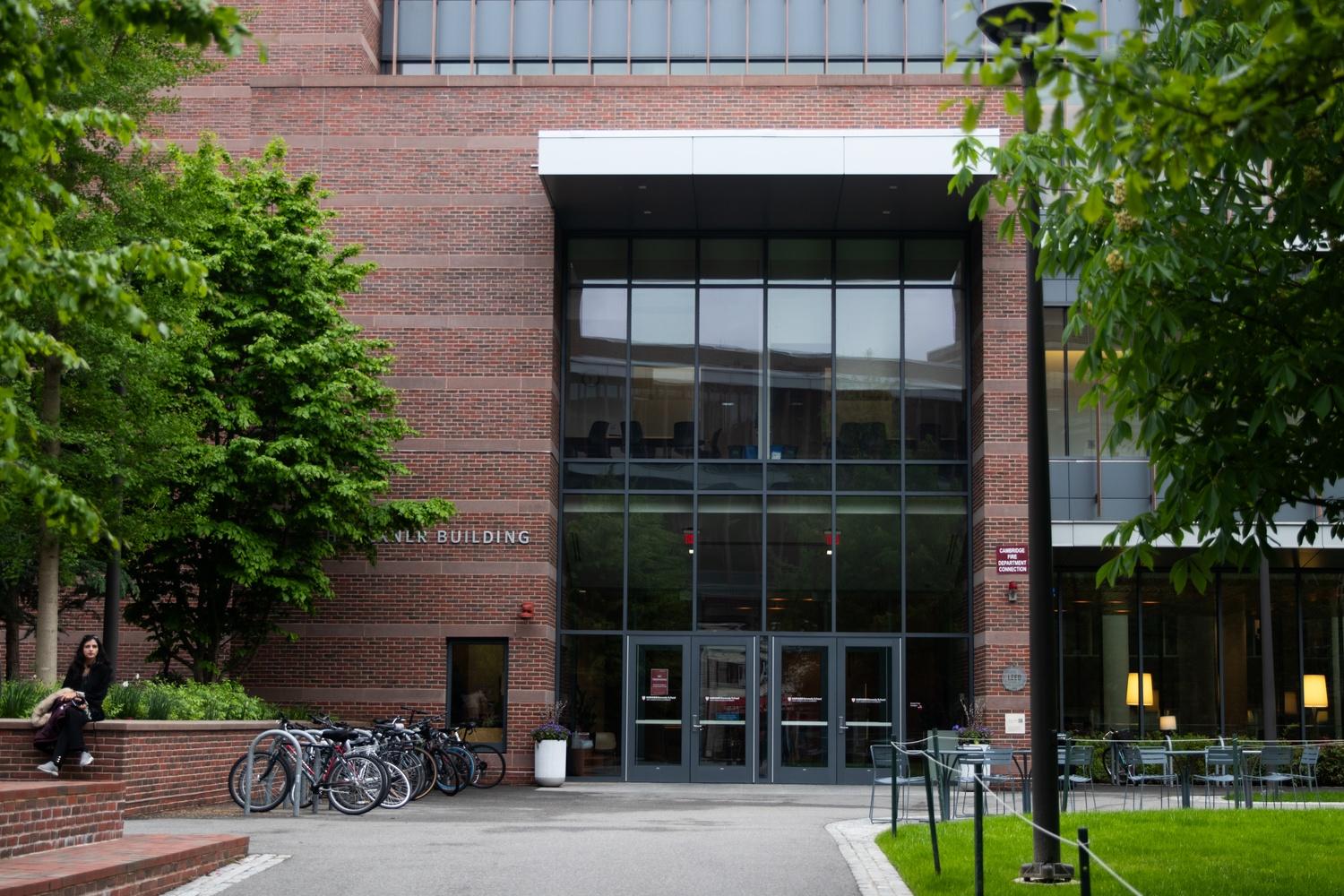
Staffing the National Security Council (NSC) with known “China hawks,”[1] Sullivan was also “the public voice behind U.S. military aid to Ukraine,” according to The Harvard Crimson. Staff writer Elise A. Spenner wrote: “As [President Joe] Biden prepared to depart the White House, Sullivan helped him push through a last wave of weapons shipments—and participated in discussions that authorized the secret delivery of long-range missile systems.”
The latter systems were used by Ukraine to launch air attacks into Russia that killed civilians, destroyed critical infrastructure and energy facilities inside Russia, creating hardship for its people and heightening the risk of nuclear war.
Seymour Hersh reported that Sullivan was the one who led the Biden administration’s planning for the destruction of the Nord Stream pipeline—a major act of environmental terrorism.
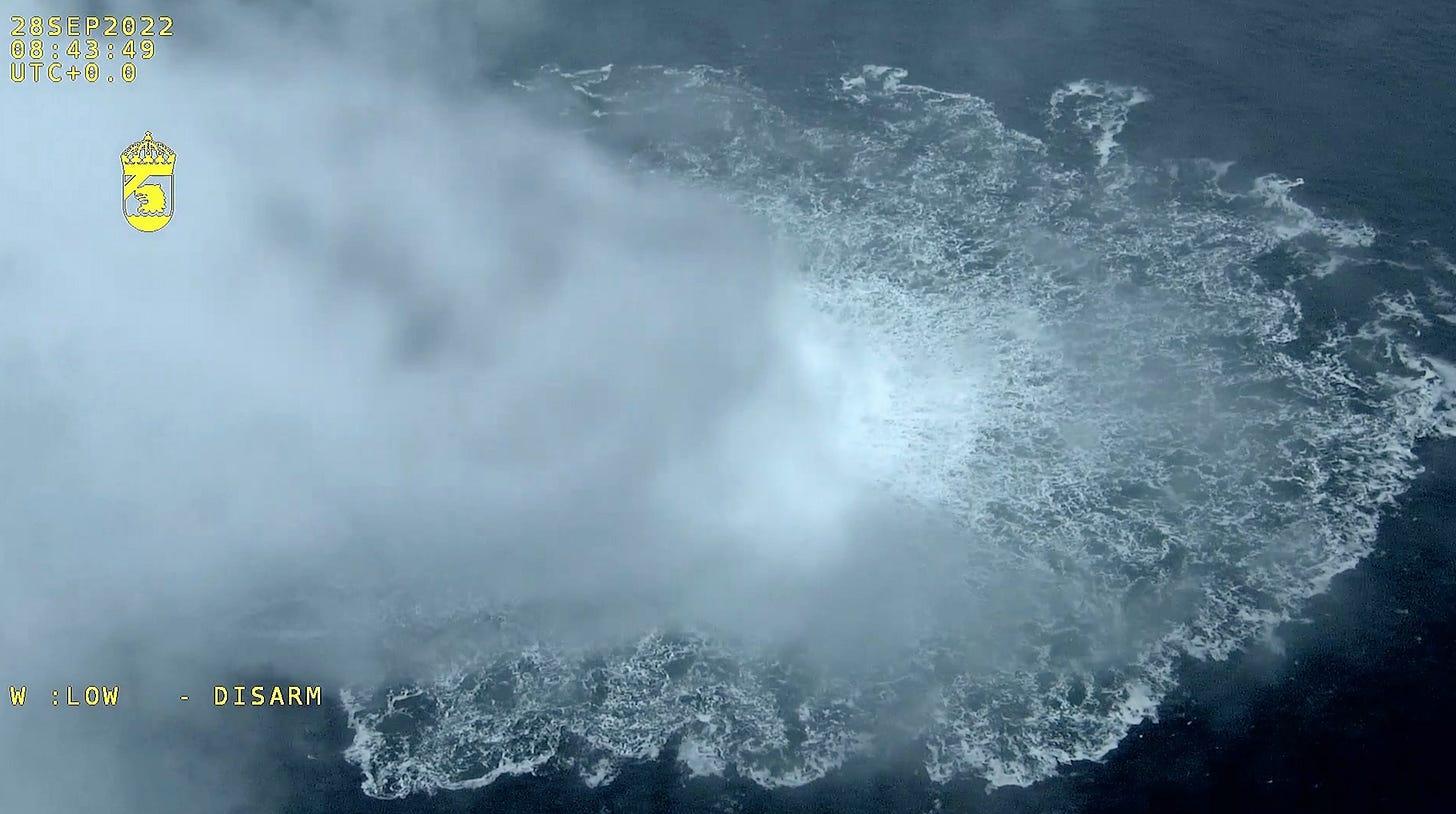
As a top policy adviser to Barack Obama, Sullivan served as a key link between then-Vice President Biden and top State Department official Victoria Nuland in helping to coordinate the 2014 Maidan coup against Ukraine’s legally elected government.
This coup destabilized Ukraine, empowered far-right extremists and set in motion the events that resulted in a war with Russia that has led to more than one million deaths.[2]
When President Biden came under fire for authorizing the transfer of cluster munitions to Ukraine in the summer of 2023, Sullivan defended the decision even though the transfer was illegal and the munitions are known to disproportionately harm civilians—both at the time of use and for years after a conflict has ended.[3]

In June 2024, CodePink founder Medea Benjamin and others disrupted Sullivan’s speech at the American Jewish Committee’s Global Forum and called him a war criminal.
CodePink afterwards issued a statement saying that Sullivan’s refusal to name the Israeli genocide for what it was allowed Israel to continue its genocidal campaign, with U.S. arms that Sullivan had helped greenlight.

Sullivan’s support for Israeli war crimes continued when he called Israeli air strikes in Lebanon that killed women and children “justice served”[4] and defended Israeli military operations in Syria that expanded its illegal occupation of the Golan Heights, saying that Israel had a right to defend itself from “weapons of mass destruction and more conventional threats.”
Sullivan’s Russophobia was apparent in his playing a leading role advancing disinformation in the Russia Gate hoax as a campaign aide to Hillary Clinton in 2016.
Clinton had been Sullivan’s mentor and he cut his teeth working with her during her tenure as Secretary of State. In this capacity, he played key roles in the U.S.-backed coup in Honduras, the planning of the U.S./NATO invasion of Libya, which plunged Libya into a new dark age, and the covert arming of Islamic terrorists in Syria as part of a larger regime change operation.[5]
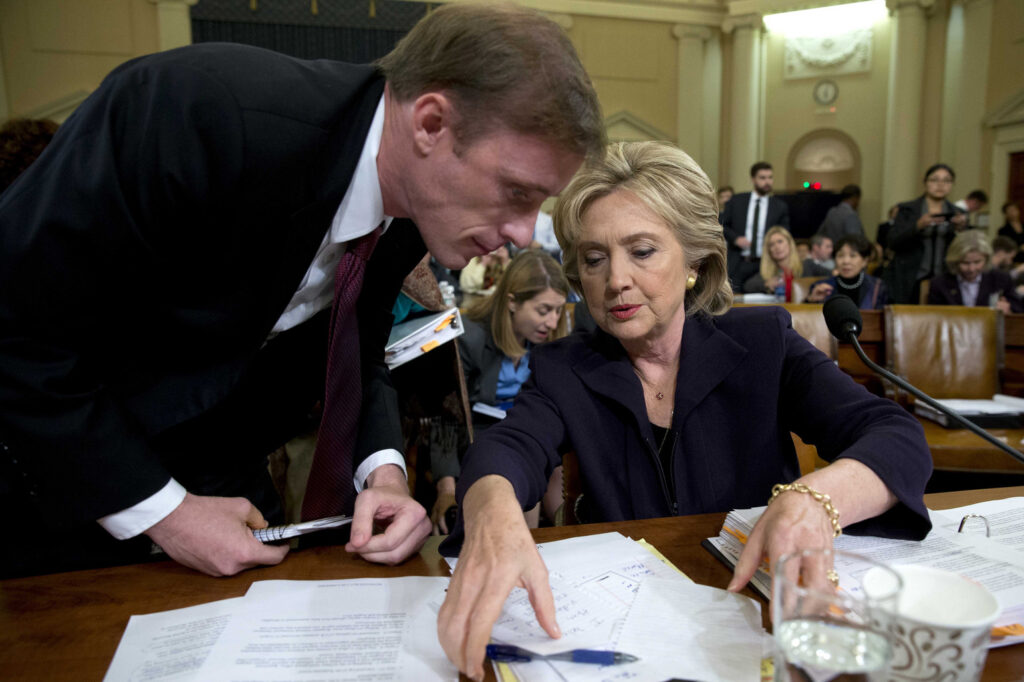
A child of the 1980s who grew up watching Rocky movies and others that demonized the Soviet Union, Sullivan published an article in The Atlantic in 2019 that laid out his belief in the need to reclaim the idea of American exceptionalism from what he considered the arrogant brand of exceptionalism adopted by Dick Cheney.
A graduate of Yale University Law School[6] who, according to one critic, possesses a “shallow Hollywood understanding of history,”[7] Sullivan is a Rhodes scholar who was described by President Biden as a “once-in-a-generation intellect.”
If the latter is the case, then why was it that he helped to coordinate such fundamentally immoral policies that mark him as complicit in war crimes and genocide?
And put him against the tide of history?
Journalist Rick Sterling wrote: “The trend toward a multipolar world is escalating and Jake Sullivan is trying to reverse the trend, but reality and history are working against him. Over the past four or five decades, the U.S. has gone from being an investment, engineering and manufacturing powerhouse to a deficit-spending consumer economy waging perpetual war with a bloated military-industrial complex [whose} bullying is being rejected by more and more countries.”
In an evaluation for CovertAction Magazine, I gave the Biden administration’s foreign policy an “F” grade.

This was based on not only the calamitous policies in Ukraine and Israel-Gaza but also Biden’s support for heinous dictatorships—like the ones led by the Saudi Royal Family, Paul Kagame in Rwanda and Yoweri Museveni in Uganda—and numerous regime-change operations.
The latter included one in Bangladesh that empowered Islamic extremists who began targeting Hindus in violent pogroms, and others designed to unseat socialist governments in Latin America that tried to reclaim control over their countries’ natural resources.
Joining with Other War Criminals on Harvard Faculty
Sullivan’s appointment coincided with that of Brett McGurk as a senior fellow at the Belfer Center for Science and International Affairs at the Harvard Kennedy School. McGurk was Joe Biden’s coordinator for the Middle East and North Africa and one of the administration’s key advisers on Israel’s war on Gaza.
McGurk also served in the George W. Bush, Obama and Trump administrations, where he strongly influenced U.S. policy in Iraq. McGurk has been criticized for his strong support of former Iraqi Prime Minister Nouri al-Maliki, who earned the nickname “the Shia Saddam.” One diplomat called McGurk “a consummate operator in Washington” but saw “no sign that he was interested in Iraqis or Iraq as a place full of real people.”
Harrison Mann, a Harvard Kennedy School graduate who resigned in May 2024 from the Defense Intelligence Agency (DIA) in protest of U.S. policy in Gaza, called McGurk “an enthusiastic and influential advocate for the U.S. military support that sustained Israel’s brutal campaign in Gaza.”
“Hiring McGurk is a declaration that being party to a litany of war crimes isn’t a deal-breaker at Harvard,” wrote Mann.[8]
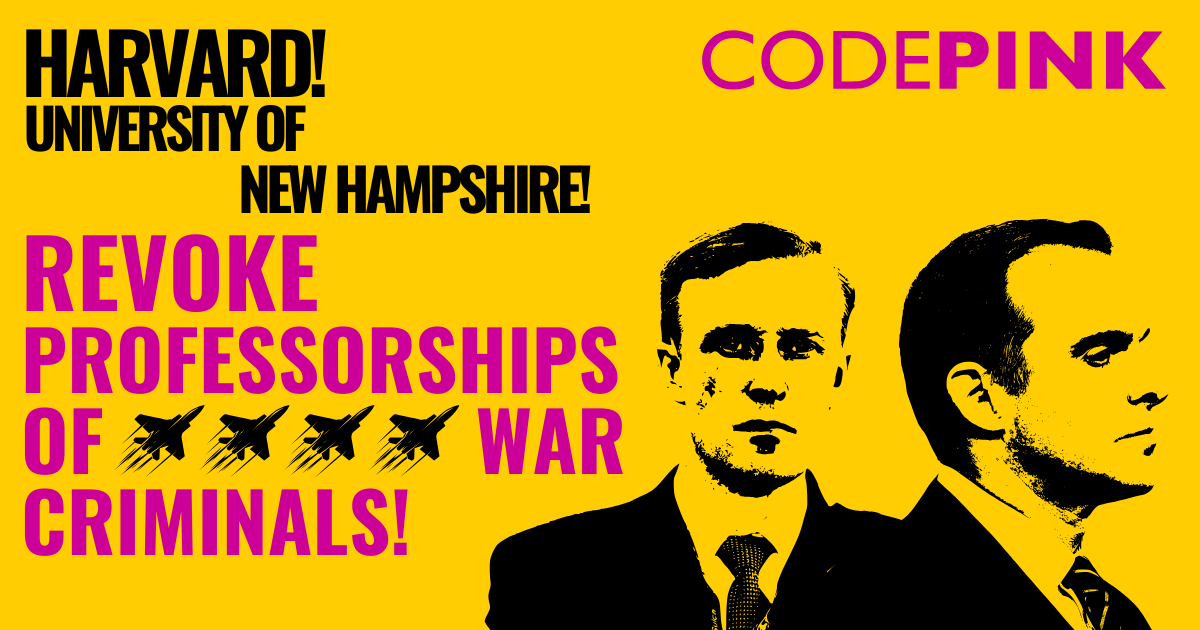
McGurk’s now colleague Meghan O’Sullivan, the Jeane Kirkpatrick Professor at the Belfer Center, can also be considered a war criminal.
According to a 2006 profile in The New York Times, O’Sullivan was one of Bush’s top advisers on Iraq and Afghanistan. Colleagues said that she was “instrumental in shaping Mr. Bush’s views,” and “the most senior official working on those nations full time at the White House.”
She also spent more than a year in Baghdad as an aide to Paul Bremer, who headed the Coalition Provisional Authority, making him Iraq’s de facto ruler during the first year of the occupation. Bremer single-handedly implemented widely reviled free-market reforms and privatization schemes while in charge that triggered Iraqi resistance.
In 2022, O’Sullivan, who was already a professor at the Harvard Kennedy School, faced protests from anti-war activists for her position as a board director of weapons giant Raytheon—a lucrative position she held starting in 2017 from which she stepped down in early 2023 only after being appointed as the Belfer Center director.[9]
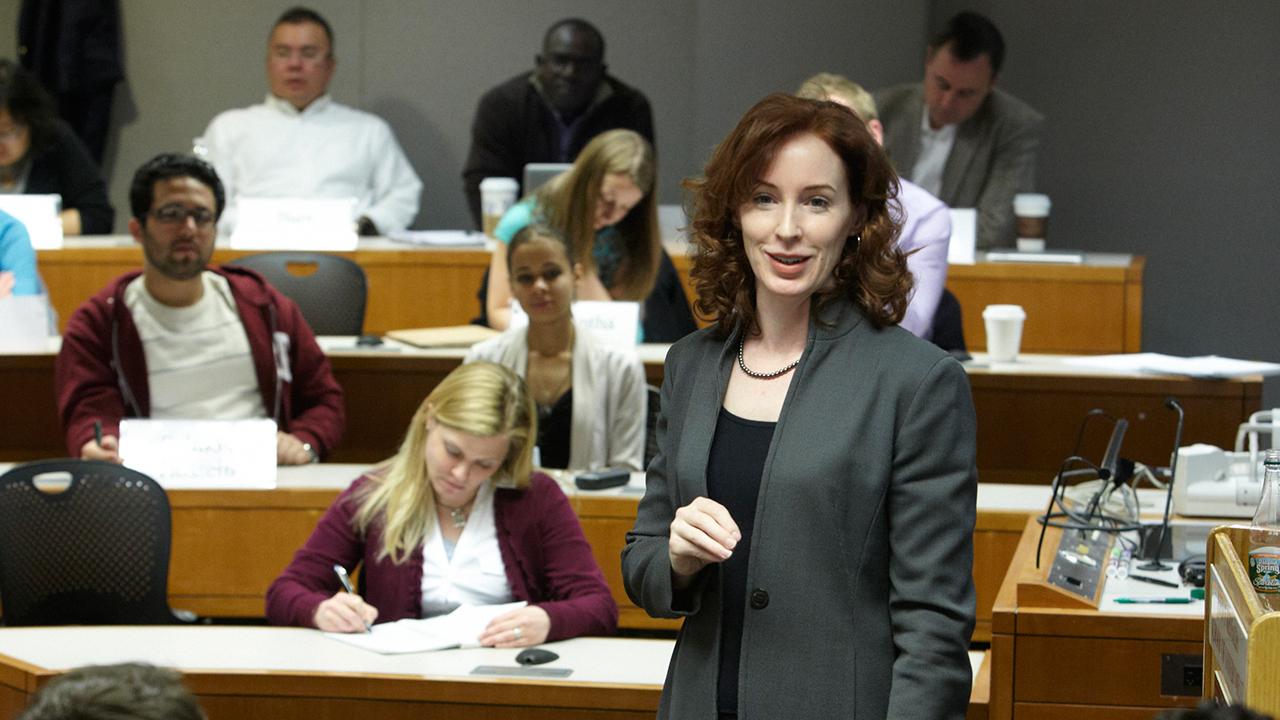
Journalist Michael Massing noted that the Belfer Center is a “virtual arm of the military-intelligence complex,” with a slew of top leaders and fellows tied to the Pentagon and weapons companies.
The school also “swarms with former intelligence brass,” according to Daniel Golden, author of the 2017 book Spy Schools: How the CIA, FBI and Foreign Intelligence Secretly Exploit America’s Universities.
For six years, one of the Belfer Center’s senior fellows was former CIA Director David Petraeus, who oversaw the criminal Operation Timber Sycamore, which procured arms from mafia elements in Eastern Europe that were sent to jihadist terrorists in Syria.
Petraeus also oversaw murderous counterinsurgency operations in Afghanistan and Iraq.
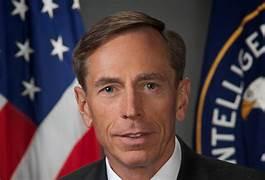
The Belfer Center’s director from 1995 to 2017, Graham Allison, served on the Defense Policy Board under every Secretary of Defense from Caspar Weinberger to James Mattis; was a special adviser to the Secretary of Defense from 1985 to 1987; and was Assistant Secretary of Defense for Policy and Plans from 1993 to 1994. Allison also served on the boards of major investment and wealth management funds, including Chase Bank, Chemical Bank, the International Energy Corporation, and Getty Oil.
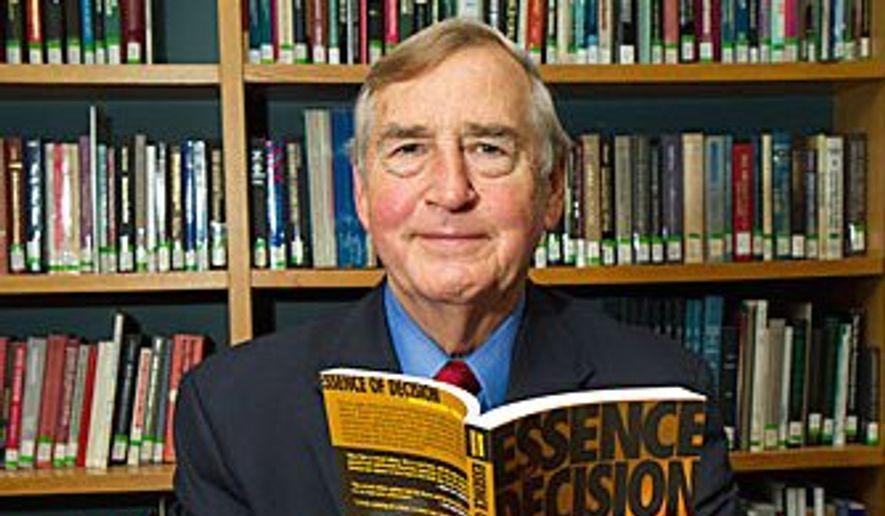
Under Allison’s direction, the Belfer Center established an Intelligence Project which, according to its website, “links intelligence agencies with Belfer researchers, Faculty, and Kennedy School students, to enrich their education and support public policy decision-making.”

The project is led by Paul Kolbe, who spent 25 years in the CIA’s Directorate of Operations in both foreign and domestic roles. Among its 52 senior fellows is James Clapper, the U.S. Director of National Intelligence from 2010 to 2017.
Every year, the project hosts more than a dozen “rising intelligence stars” from around the world as part of a fellowship program conceived by Petraeus, the CIA director from September 2011 to November 2012.[10]
Comparison with Kissinger
Jake Sullivan’s career compares in certain respects with that of Henry Kissinger who was a professor at Harvard from 1954 to 1969 in its government department and at the Center for International Affairs.
Kissinger is infamous for coordinating the Christmas bombings over North Vietnam and expanding the Vietnam War, including into Laos and Cambodia, during his tenure as National Security Adviser and Secretary of State under President Richard M. Nixon and subsequently Gerald M. Ford.
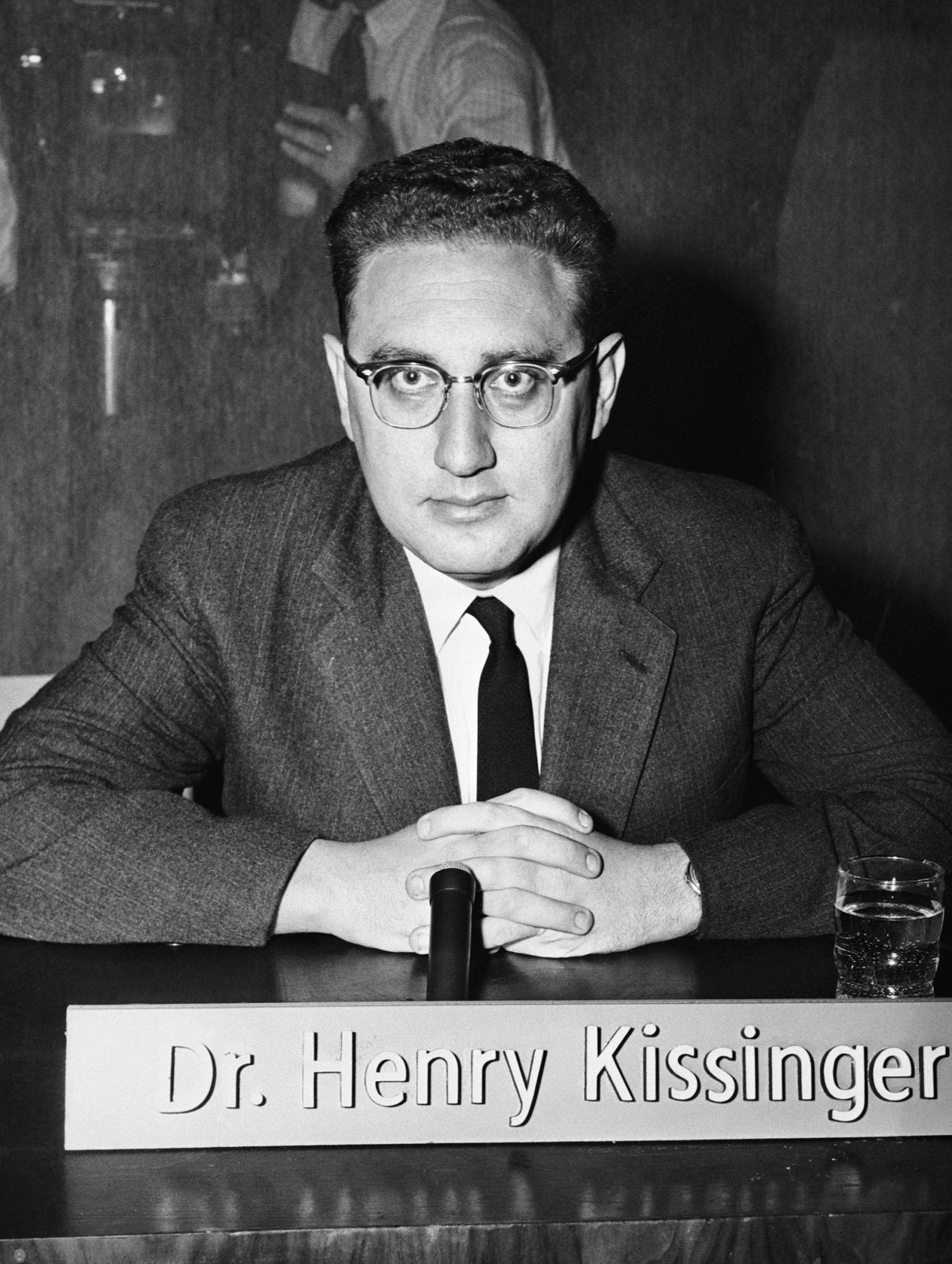
The expansion of the wars into Laos and Cambodia involved massive secret bombing operations that killed countless civilians and, in the case of Cambodia, set the groundwork for the genocide under the Khmer Rouge.
The great traveling food connoisseur Anthony Bourdain wrote of Kissinger:
“Once you’ve been to Cambodia, you’ll never stop wanting to beat Henry Kissinger to death with your bare hands. You will never again be able to open a newspaper and read about that treacherous, prevaricating, murderous scumbag sitting down for a nice chat with Charlie Rose or attending some black-tie affair for a new glossy magazine without choking. Witness what Henry did in Cambodia – the fruits of his genius for statesmanship – and you will never understand why he’s not sitting in the dock at The Hague next to Milošević.”
People who visit Chile might feel similarly, as Kissinger played a significant role there in a CIA-backed fascist coup that brought great misery to Chile’s people.
Additionally, Kissinger greenlit Indonesia’s genocidal invasion of East Timor in 1975, telling General Suharto the night before it was launched: “It is important that whatever you do succeeds quickly.” Kissinger also wrote in a memo that “a merger with Indonesia is probably the best solution for the colony [East Timor, which was invaded after promoting independence from Indonesia].”[11]
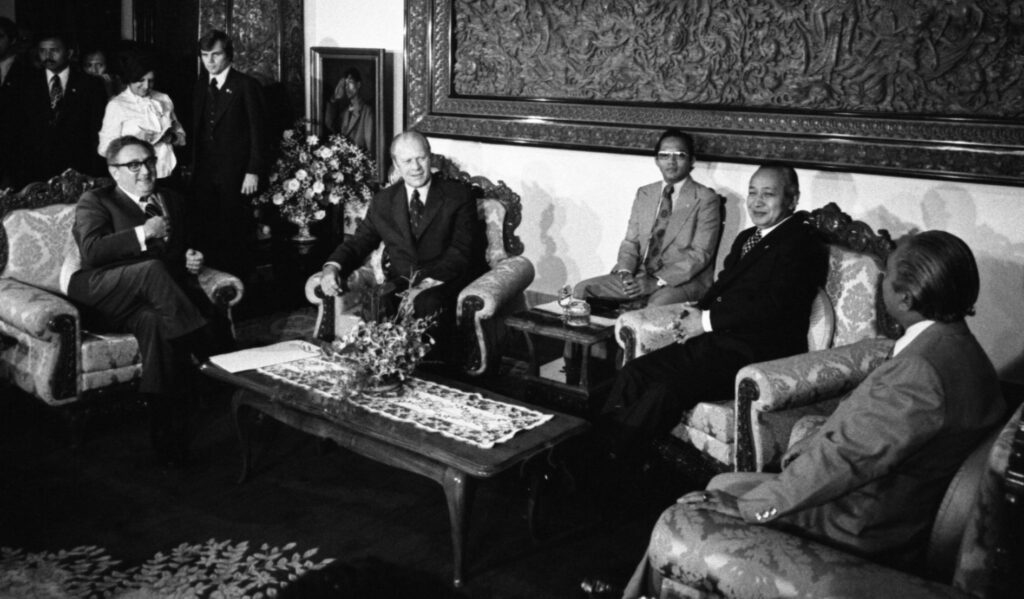
While a professor at Harvard in the 1950s, Kissinger published a book that grew out of a study he undertook with the Council on Foreign Relations (aka Wall Street’s think tank), Nuclear Weapons and Foreign Policy, which advocated for “restricted nuclear war.”
A hawk on Korea, he was then a prototype for sociologist C. Wright Mills’ caricature of a “crackpot realist” who knew of “no solutions to the paradoxes of the Middle East and Cuba [and] Far East except the landing of Marines. They prefer the bright clear problems of war for they still believe that ‘winning’ means something, although they never tell us what.”
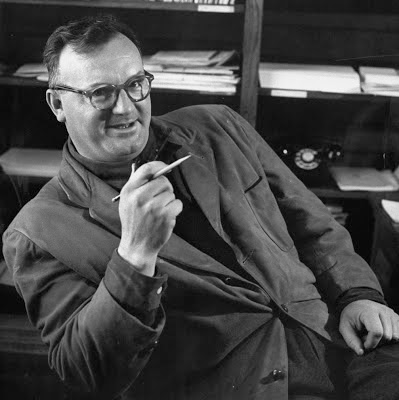
Jake Sullivan fits the same kind of prototype, which is why he is well-suited to take up the first Kissinger chair.
Lineage of Tweed-Jacketed Hawks
Besides Kissinger there is a long lineage of war hawks who have taught at Harvard.
The most famous include:
1. McGeorge Bundy: Hailing from a prominent Boston brahmin family, Bundy was a professor in the Department of Government where he taught U.S. foreign policy and Dean of the Faculty of Arts and Sciences at Harvard from 1953 to 1961. He then went on to serve as a National Security Adviser under John F. Kennedy and Lyndon B. Johnson and was one of the key architects of the Vietnam War.[12] Close to CIA Director Allen Dulles (1953-1961), Bundy was considered to be “The CIA’s Man in the White House.” In The Best and the Brightest, David Halberstam recounted how Professor Bundy would bring Harvard students to the edge of their seats recounting the perfidy of Neville Chamberlain in his appeasement policy toward Hitler and drew parallels to the present day, with Ho Chi Minh and other communist foes standing in for Hitler.[13] An article in The Harvard Gazette pointed out that, as dean, Bundy had been keen to put the expertise of Harvard’s academics at the “disposal of the U.S. government,” and that he “pressed faculty members to cooperate with authorized investigations of communist influence (i.e., McCarthyism) in academia, for which he had zero tolerance.”
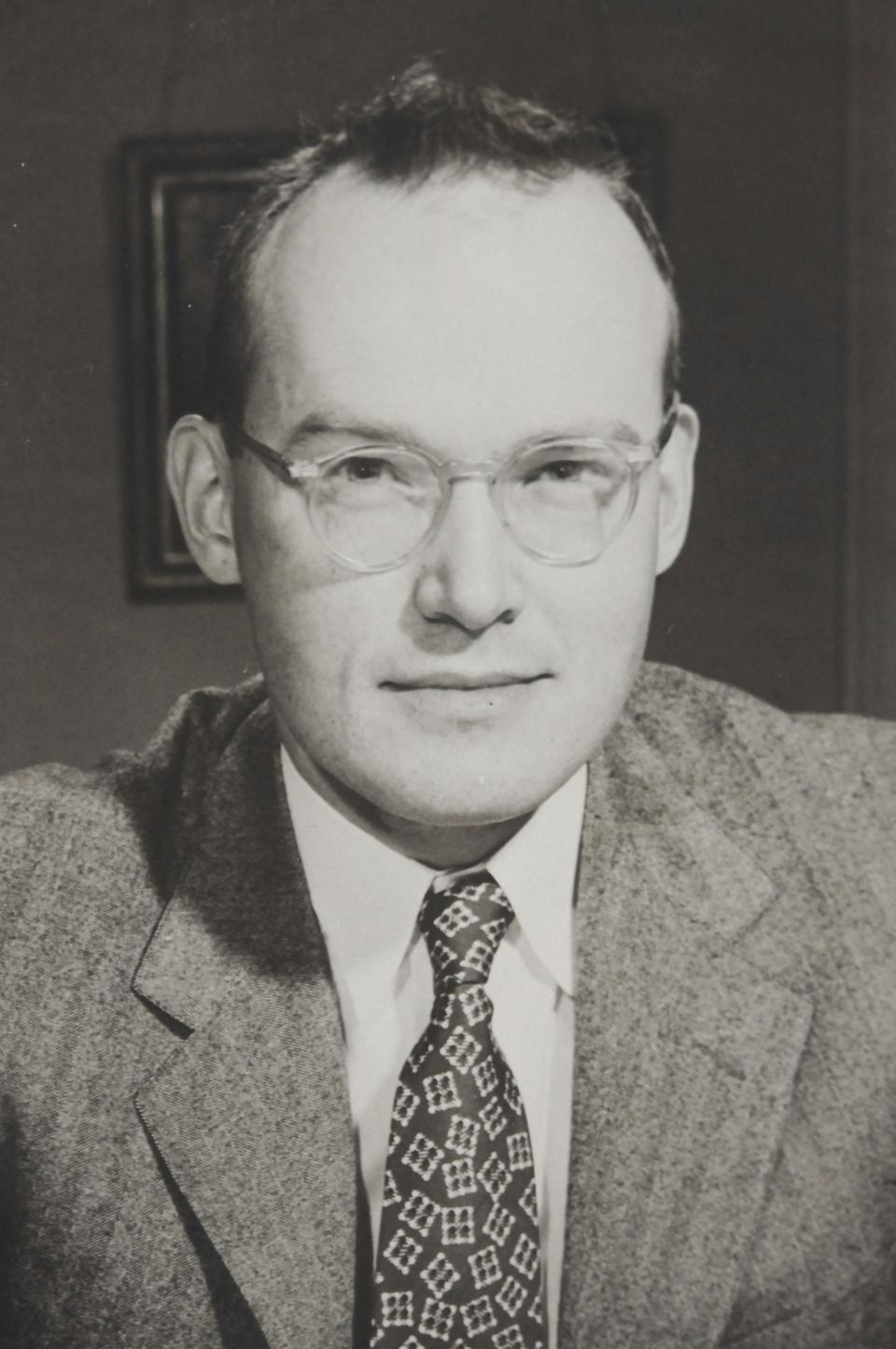
2. Samuel P. Huntington: He was a long-time Harvard University political science professor associated with the elite Trilateral Commission (founded by David Rockefeller in 1973) who was uncloaked as a CIA “asset” who worked secretly with a CIA consultant and served as a coordinator for the National Security Council under Jimmy Carter. With the Trilateral Commission, Huntington co-authored a 1975 report, The Crisis of Democracy, which portrayed the 1960s-era movements as a threat to public order and discussed how the U.S. could return to the days when a small group of Wall Street lawyers and bankers ruled the country without any social disturbances. In a 1968 Foreign Affairs piece, Huntington argued for large-scale bombing operations in rural South Vietnam to force peasants into the cities where they could be won over to the American side through USAID aid projects.[14] Huntington went on to write The Clash of Civilizations, which advanced xenophobic views along with a vision of American exceptionalism that was used by the neo-conservatives to justify endless war and conquest in the Middle East. During the 1960s, anti-war students at Harvard branded Huntington as a “mad dog” and war criminal and protested his classes.
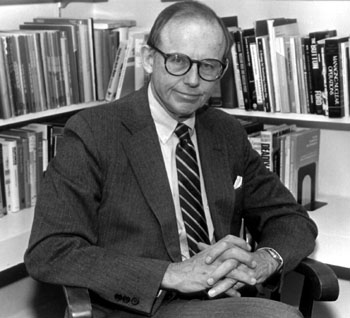
3. Richard Pipes: Pipes was a fervent anti-communist historian and author of numerous books of Russian and Soviet history, who taught in Harvard’s history department from 1958 until 1996.[15] In 1976, Pipes led a group of military and foreign-policy experts, known as Team B, whose function was to sabotage Nixon-Kissinger’s détente policy[16] and promote alarmist and grossly exaggerated rhetoric about Soviet military strength that would help facilitate a massive military build-up in the aftermath of the Vietnam War.[17] Serving as an adviser to hawkish Senator Henry “Scoop” Jackson[18] (D-WA) and member of the elitist Council on Foreign Relations, Professor Pipes continued his campaign for a tougher foreign policy toward the Soviet Union in the late 1970s as a member of the neo-conservative Committee on the Present Danger and as director of Eastern European and Soviet Affairs for President Ronald Reagan’s National Security Council in the 1980s.
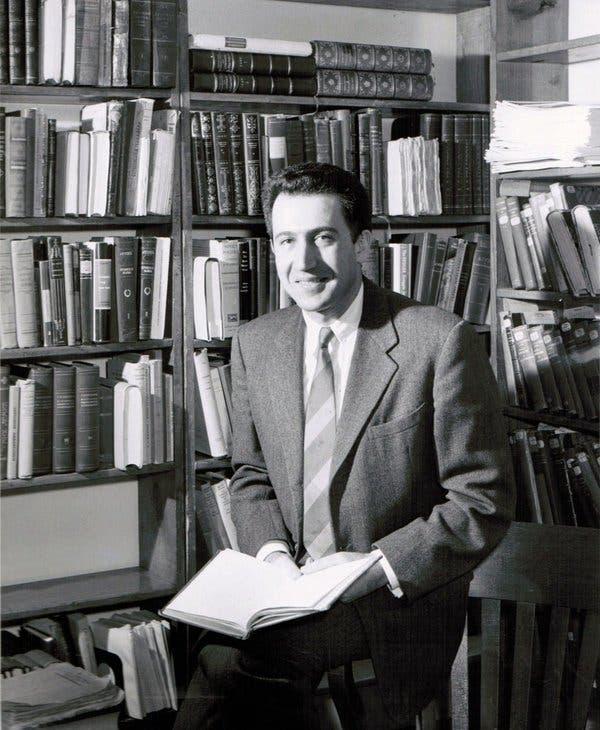
4. Samantha Power: Power was a professor at the Harvard Carr Center for Human Rights Policy in the late 1990s and early 2000s and is listed as being on the Kennedy School’s faculty today. She went on to become a senior director in the National Security Council under Barack Obama and U.S. Ambassador to the UN, where she was a key figure pushing for the U.S.-NATO bombing and invasion of Libya. Power claimed a humanitarian pretext for this intervention, which helped to thrust Libya back into a dark age. She was also a gung-ho hawk on Syria and Ukraine. Power was famous for her book, “A Problem from Hell”: America and the Age of Genocide (Basic Books, 2002), which criticized the U.S. for failing to intervene historically to halt genocide. In a 2013 article in The Asia Pacific Journal, I discuss how Power’s book oversimplified and misrepresented complex historical conflicts and ignored the geo-strategic variables driving U.S. foreign policy interventions. In one chapter she valorized war propagandist Henry Morgenthau and supported more aggressive U.S. military intervention in World War I. In other chapters she completely underplayed the pernicious impact of U.S. military interventions, while ignoring cases where the U.S. either committed or supported genocides.
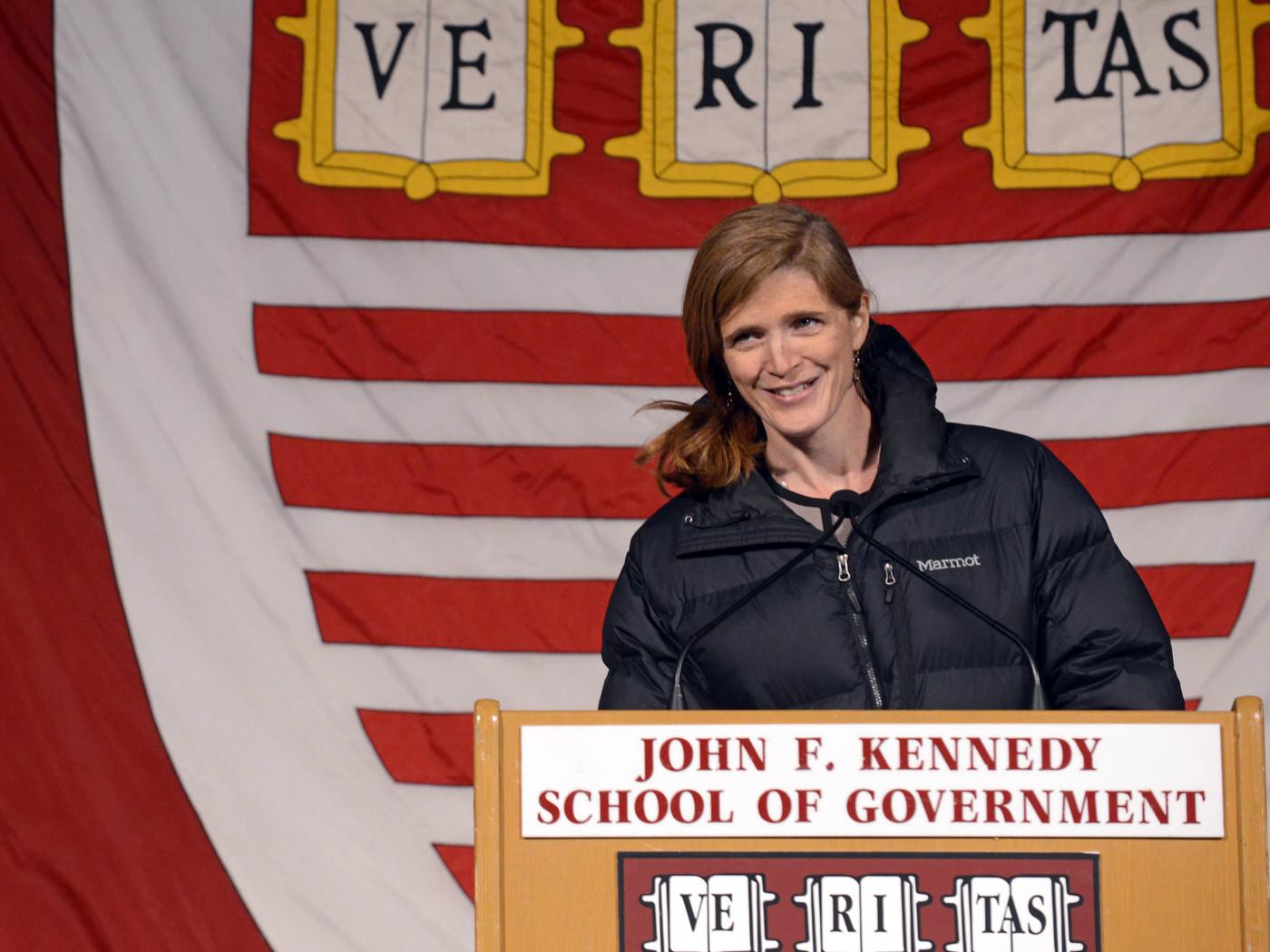
5. Michael Ignatieff: Power’s Carr Center colleague Michael Ignatieff was a leading proponent of “humanitarian intervention” in the 1990s and early 2000s who made a failed bid to become Canada’s prime minister in 2007. Ignatieff’s support for the Balkans conflict in the 1990s was based on a demonized view of the Serbs who had been trying to keep the Yugoslav Federation together. Throughout that decade, he expressed belief that “had we been more ruthlessly imperial, we might have been a trifle more effective.” Ignatieff expanded on this analysis in a now-famous essay for The New York Times Magazine in January 2003 entitled “The American Empire; The Burden,” in which he voiced support for an invasion of Iraq. Characterizing the United States as an “‘empire light’ whose grace notes are free-markets, human rights and democracy enforced by the most awesome military power the world has ever known,” Ignatieff wrote that “multilateral solutions to the world’s problems are all very well, but they have no teeth unless America bares its fangs.” Considering “regime change” an “imperial task par excellence,” he said it “remains a fact—as disagreeable to those left-wingers who regard American imperialism as the root of all evil as it is to right-wing isolationists who believe that the world beyond our shores is none of our business—that there are many people who owe their freedom to an exercise of American military power.”
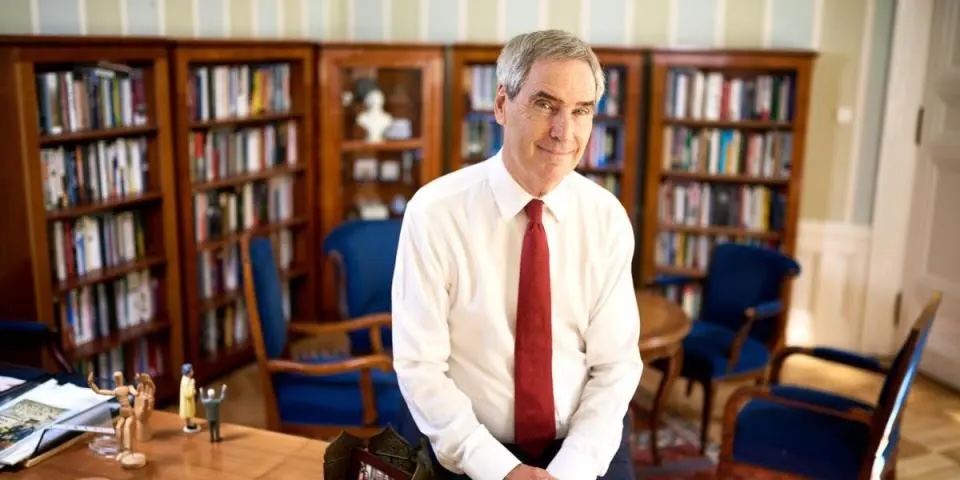
Jake Sullivan seems to hold very similar views to Ignatieff.
Forgotten Crimson Ties to the Anti-Imperialist League
If we turn the clock way back in time, we can see that Harvard has had some honorable professors who spoke out against war and empire.
For example, Harvard’s president from 1869 to 1903, Charles William Eliot, who transformed Harvard from a provincial college into a world-class research university, was a member of the Anti-Imperialist League, which opposed U.S. colonization of the Philippines and other countries.
A one-time professor of mathematics and chemistry, Eliot tried to ban football from the campus, claiming that the game’s strategy and ethics were the “barbaric ones of war.”
After the U.S. sent troops into the Philippines, Eliot declared before a Cambridge, Massachusetts, audience that America’s “rash eagerness for a totally unnecessary war was a turning back from the path of civilization to that of barbarism….to wage such a war was a national crime.”[19]
Eliot was attacked in the Chicago Tribune, which accused him of “trying to kill the generous impulses of patriotism and to besmirch the noble cause of humanity upon which the war against Spain is based.”[20]
Eliot’s star professor at Harvard, William James, supported him, however, after joining him in the Anti-Imperialist League. James—who is known as the “father of American psychology”—considered U.S. policy in the Philippines to be little more than “brutal piracy.”[21]
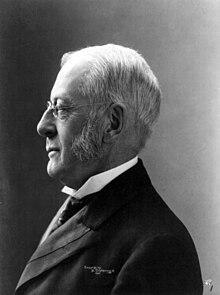
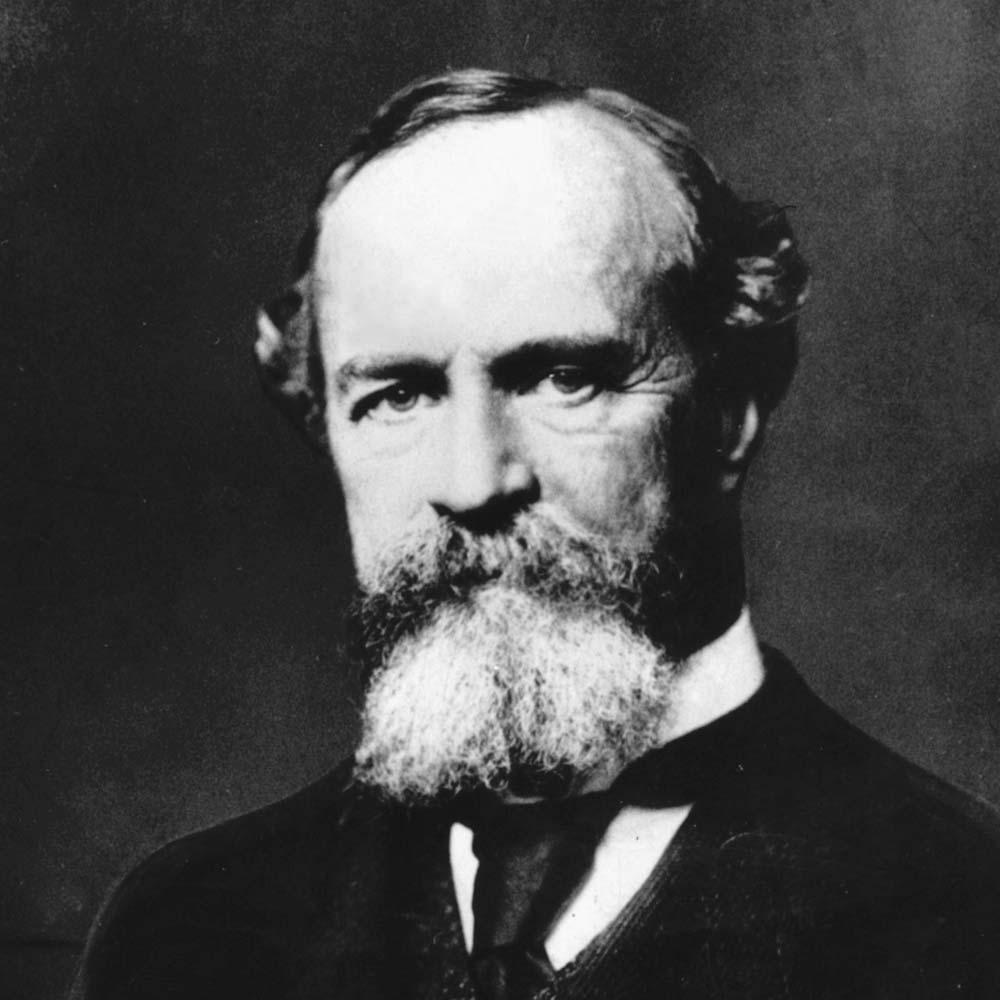
If he were still alive, James would no doubt consider U.S. policies advanced by Sullivan to fit the same characterization.
Sadly, it is unlikely that James would be appointed to teach at Harvard in today’s climate or be granted tenure.
Perhaps some members of the Board of Trustees would accuse him of being an Aguinaldo lover or apologist (Philippines nationalist who led national mobilization against the U.S. military) or maybe even an anti-Semite—although back then there was real anti-Semitism, with quotas for Jewish students (something Eliot was against).
You can support CodePink’s campaign to block Sullivan’s appointment here.

See Alex Thompson, Phelim Kine and Max Tani, “Jake’s nest of China hawks,” Politico, April 13, 2022. ↑
See Jacques Baud, Operation Z (Paris: Max Milo, 2022). ↑
Over 100 countries, including the UK, France and Germany, have outlawed cluster munitions under the Convention on Cluster Munitions, though the U.S. and Ukraine are not signatories to the ban. Eva Bartlett wrote in CovertAction Magazine that “younger children don’t know that the [cluster munitions] aren’t toys, and [the] elderly often simply don’t see them, or likewise don’t understand the danger.” ↑
Allegedly the strike killed a terrorist who had been wanted for truck bombings in Beirut in 1983 that killed more than 300 people at the U.S. embassy and Marine barracks in Lebanon. ↑
See Jeremy Kuzmarov, Obama’s Unending Wars: Fronting the Foreign Policy of the Permanent Warfare State (Atlanta: Clarity Press, 2019). ↑
Sullivan also holds a B.A. degree from Yale and Master’s degree from Oxford. At one time he worked with former Deputy Secretary of State Strobe Talbott, a key architect of failed U.S. policies in Russia in the 1990s who is believed to have connections with the CIA. ↑
This superficial understanding was apparent in his claim that, in the 1990s, the Balkans conflict, “an American-led alliance ended a genocide in Bosnia and prevented one in Kosovo.” ↑
According to reporting by The Atlantic, McGurk would push back against colleagues concerned by civilian casualties in Gaza by “invoking his stint overseeing the siege of Mosul during the Obama administration,” an operation that cost the lives of 9,000 Iraqi civilians. ↑
Jeane J. Kirkpatrick, whose chair O’Sullivan holds, can also be considered a war criminal. She was a key facilitator of the U.S. foreign policy in Central America in the 1980s that entailed arming of the Nicaraguan Contras and death-squad operations in El Salvador and Guatemala. She developed a theory that right-wing authoritarian regimes could transition to democracy unlike left-wing regimes, and so the U.S. should support the far right over the left and encourage democratic transition. ↑
Harvard has also participated in the purging of pro-Palesitnian academics. For example, Interim Dean of Social Science David Cutler, offered no public justification after he removed the director and associate director of Harvard’s Center for Middle Eastern Studies, Cemal Kafadar and Rosie Bsheer. As the Harvard Crimson reported, this “dramatic shakeup” followed previous moves by the university to sever ties with Palestinian institutions and cancel events. Harvard’s president, Alan Garber, receives a salary of nearly $1 million, and he has received millions for sitting on the boards of various pharmaceutical giants. Prior to Trump’s re-election, Garber’s administration led the attack on student protesters, most infamously by blocking 13 undergraduates from collecting their diplomas during last year’s commencement for participating in demonstrations against the genocide. The move was initially overturned by the Faculty of Arts and Sciences, only to be reinstated by the Harvard Corporation, which is packed with corporate CEOs and former members of Democratic Party administrations, such as billionaire Penny Pritzker, whose family built a Hyatt hotel in occupied East Jerusalem after the 1967 Six-Day War. ↑
Many other of Kissinger’s misdeeds are chronicled in Greg Grandin’s book, Kissinger’s Shadow: The Long Reach of America’s Most Controversial Statesman (New York: Metropolitan Books, 2015). ↑
McGeorge’s father, Harvey, had been an aide to Secretary of War Henry Stimson during World War II and subsequently helped to implement the Marshall Plan. ↑
See David Halberstam, The Best and the Brightest (New York: Random House, 1972). ↑
A brilliant dissection of Huntington’s views can be found in Noam Chomsky, “The Carter Administration: Myth and Reality,” Excerpts from Radical Priorities, 1981. ↑
Pipes’s critics argued that his historical writings perpetuated the Soviet Union as the “evil empire” narrative in an attempt “to put the clock back a few decades to the times when Cold War demonology was the norm.” Diane P. Koenker described his book The Russian Revolution as having a “fundamentally reactionary” perspective that presents a sympathetic view of imperial forces and depicted Lenin as a “single-minded, ruthless and cowardly intellectual.” ↑
Pipes once called détente as having been “inspired by intellectual indolence and based on ignorance of one’s antagonist and therefore inherently inept.” ↑
International relations journalist Fred Kaplan wrote that Team B “turns out to have been wrong on nearly every point.” ↑
Jackson was also known as the “senator from Boeing.” ↑
Eliot quoted in Robert L. Beisner, Twelve Against Empire: The Anti-Imperialists, 1898-1900 (Chicago: Imprint Publications Inc., 1968), 80. ↑
Beisner, Twelve Against Empire, 237; “William James.on ‘The Philippines Question,’” Report of the Fifth Annual Meeting of the New England Anti-Imperialist League, November 28, 1903 and Its Adjournment Nov. 30 (Boston, Mass.: New England Anti-Imperialist League, 1903), 21-26. James wrote in the latter essay about an “eternal division inside of each country between the more animal and the more intellectual kind of men, between the tory and the liberal tendencies, the jingoism and animal instinct that would run things by main force and brute possession, and the critical conscience that believes in educational methods and in rational rules of right.” ↑
James quoted in Daniel B. Schirmer, Republic or Empire: American Resistance to the Philippine War (Cambridge, MA: Schenkman Publishing Company, 1972), with Preface by Howard Zinn. ↑
CovertAction Magazine is made possible by subscriptions, orders and donations from readers like you.
Blow the Whistle on U.S. Imperialism
Click the whistle and donate
When you donate to CovertAction Magazine, you are supporting investigative journalism. Your contributions go directly to supporting the development, production, editing, and dissemination of the Magazine.
CovertAction Magazine does not receive corporate or government sponsorship. Yet, we hold a steadfast commitment to providing compensation for writers, editorial and technical support. Your support helps facilitate this compensation as well as increase the caliber of this work.
Please make a donation by clicking on the donate logo above and enter the amount and your credit or debit card information.
CovertAction Institute, Inc. (CAI) is a 501(c)(3) non-profit organization and your gift is tax-deductible for federal income purposes. CAI’s tax-exempt ID number is 87-2461683.
We sincerely thank you for your support.
Disclaimer: The contents of this article are the sole responsibility of the author(s). CovertAction Institute, Inc. (CAI), including its Board of Directors (BD), Editorial Board (EB), Advisory Board (AB), staff, volunteers and its projects (including CovertAction Magazine) are not responsible for any inaccurate or incorrect statement in this article. This article also does not necessarily represent the views the BD, the EB, the AB, staff, volunteers, or any members of its projects.
Differing viewpoints: CAM publishes articles with differing viewpoints in an effort to nurture vibrant debate and thoughtful critical analysis. Feel free to comment on the articles in the comment section and/or send your letters to the Editors, which we will publish in the Letters column.
Copyrighted Material: This web site may contain copyrighted material the use of which has not always been specifically authorized by the copyright owner. As a not-for-profit charitable organization incorporated in the State of New York, we are making such material available in an effort to advance the understanding of humanity’s problems and hopefully to help find solutions for those problems. We believe this constitutes a ‘fair use’ of any such copyrighted material as provided for in section 107 of the US Copyright Law. You can read more about ‘fair use’ and US Copyright Law at the Legal Information Institute of Cornell Law School.
Republishing: CovertAction Magazine (CAM) grants permission to cross-post CAM articles on not-for-profit community internet sites as long as the source is acknowledged together with a hyperlink to the original CovertAction Magazine article. Also, kindly let us know at info@CovertActionMagazine.com. For publication of CAM articles in print or other forms including commercial internet sites, contact: info@CovertActionMagazine.com.
By using this site, you agree to these terms above.
About the Author

Jeremy Kuzmarov holds a Ph.D. in American history from Brandeis University and has taught at numerous colleges across the United States. He is regularly sought out as an expert on U.S. history and politics for radio and TV programs and co-hosts a radio show on New York Public Radio and on Progressive Radio News Network called “Uncontrolled Opposition.”
He is Managing Editor of CovertAction Magazine and is the author of six books on U.S. foreign policy, including Obama’s Unending Wars (Clarity Press, 2019), The Russians Are Coming, Again, with John Marciano (Monthly Review Press, 2018), Warmonger. How Clinton’s Malign Foreign Policy Launched the U.S. Trajectory From Bush II to Biden (Clarity Press, 2023); and with Dan Kovalik, Syria: Anatomy of Regime Change (Baraka Books, 2025).
Besides these books, Kuzmarov has published hundreds of articles and contributed to numerous edited volumes, including one in the prestigious Oxford History of Counterinsurgency .
He can be reached at jkuzmarov2@gmail.com and found on substack here.



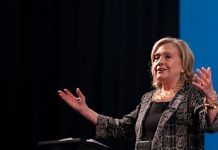
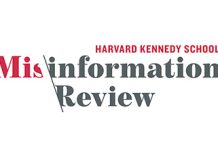
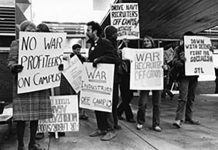

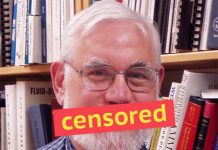


In this article it refers to “alleged” antisemitism at Harvard. I have done some homework on this subject and I can confirm that there is antisemitism at Harvard.
On a positive note Harvard Administration has taken a lot of steps to tackle this problem, so progress is being made with this problem, although there is still more work to be done.